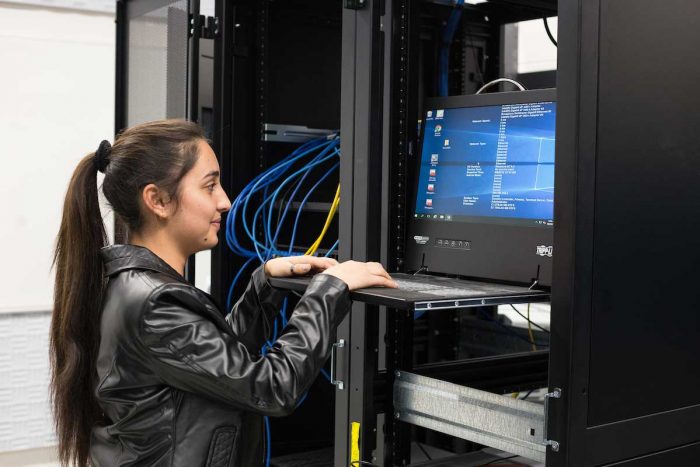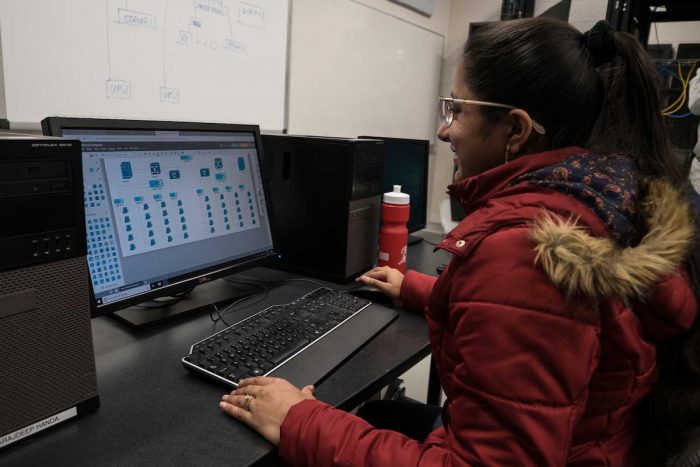Wireless Information Networking – Loyalist College in Toronto
PLEASE NOTE: Kindly be aware that selecting sidebar links on this web page will lead you to the pages related to Loyalist College in Belleville. To return to the landing page for Loyalist College in Toronto, please click here.
- Credential
Two-year Ontario College Graduate Certificate
- Location
Toronto Campus
Find your career
Wireless information networking professionals with the specialized skills to develop and implement solutions for the configuration and integration of wireless devices are in high demand and find careers in a range of sectors.
During this program, develop skills in the following:
- Network design and connectivity
- Network security concepts, tools, standards and protocols
- Wireless network installation, configuration, monitoring and troubleshooting
- Mobile communication and security
- Long-term evolution (LTE) and 5G networks
- Virtualization with VMware
- Routing and switching
- Wireless network analysis
- Operating system and app installation and customization
How You'll Learn
Experiential Learning, including a semester-long co-op work term
With this intensive hands-on program, discover the latest developments in wireless information networking and develop the specialized skills to contribute to the design, planning, implementation, operation and troubleshooting of wireless networks in various sectors.
- Learn how to apply standardized approaches and methodologies to test, measure, troubleshoot and resolve technical wired and wireless network problems.
- Explore designing and developing wired and wireless computer networks that satisfy stakeholder requirements using system design documentation.
- Practice evaluating network performance against service levels using a variety of basic and advanced network management tools in order to develop action plans that conform to service level agreements.
- Acquire skills for installing and upgrading network hardware and related components and software to comply with best practices in the wireless industry.
- Develop strategies for evaluating wireless network topologies, connectivity and characteristics to assess impact on security and internet communications.
- Gain experience collaborating with diverse teams to collect, analyze and interpret user requirements when preparing project documentation and reports.
- Get first-hand workplace experience during a co-op work term in semester four.
Co-ops in work terms are valuable work-integrated learning experiences in which students demonstrate outcomes from previous semesters in Canadian industry settings. In addition to building skills and identifying career contacts, co-ops in work terms add industry-relevant experience to students’ résumés. The co-op job market is competitive, and students will be expected to participate actively in their job searches. Students will be supported with information and skills to attain co-ops.










